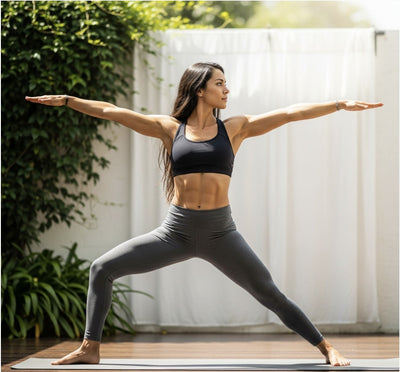
Jnana Yoga and Self-Inquiry: Seeking Inner Truth - 5To9Style
Share
Jnana Yoga and Self-Inquiry: Seeking Inner Truth
Unveiling Your True Self Through Jnana Yoga
Jnana Yoga, often hailed as the "Yoga of Wisdom," is a transformative spiritual path that emphasizes the direct realization of truth through intellect and profound self-inquiry. Unlike paths that focus primarily on devotion, action, or physical postures, Jnana Yoga delves deep into the nature of reality and one's own identity. It is a journey of intellectual discernment, philosophical understanding, and unwavering introspection, designed to dismantle illusions and reveal the eternal, unchanging essence within us.
At the heart of Jnana Yoga lies the practice of Self-Inquiry (Vichara) – a relentless, yet compassionate, questioning of "Who am I?" This isn't a casual musing but a potent spiritual discipline that can liberate us from suffering and lead to profound inner peace.

The Path of Wisdom: Beyond the Obvious
The world we perceive through our senses and intellect is often a world of appearances. Jnana Yoga teaches us to look beyond these surface-level realities to discover the underlying truth. This requires Viveka (Discrimination), the ability to discern between the real (permanent, eternal) and the unreal (temporary, illusory).

We often identify strongly with our bodies, minds, emotions, and external roles. However, a Jnana Yogi understands that these are fleeting and subject to change. By applying Viveka, we begin to see that our true Self (Atman) is distinct from these impermanent aspects. It's an inner light, a pure consciousness that observes everything but is affected by nothing. This profound understanding lays the groundwork for effective self-inquiry. Just as you'd select the right yoga accessories to support your practice, cultivating Viveka is essential to support your journey inward.
Self-Inquiry (Vichara): The Key to Inner Truth
Self-Inquiry (Vichara) is the active process of turning the mind inward to investigate the source of consciousness itself. It's the core practice in Jnana Yoga for direct realization. Instead of merely thinking about the self, Vichara involves deeply probing into the self.

The most powerful question in this practice is: "Who am I?" When you ask this question, you're not looking for your name, profession, or relationships. You're diving deeper, past the ego, past conditioning, past all external identifications, to find what remains.
This process involves:
- Persistent Questioning: Continuously directing the question "Who am I?" to the mind, without immediately seeking an intellectual answer. The goal is to transcend the intellectual and arrive at direct experience.
- Witnessing: Observing thoughts, emotions, and sensations as they arise, recognizing them as transient phenomena, not as your core identity.
- Negation (Neti Neti): A powerful technique where you systematically affirm "I am not this, I am not that" (not the body, not the mind, not the emotions) until only the unqualifiable, pure Self remains.
- Meditation: Creating a quiet space for the mind to settle, allowing the inquiry to deepen and insights to emerge organically.
Through consistent self-inquiry, the intellectual understanding of "Atman is Brahman" (the individual Self is the universal Self) transforms into a lived experience. It's a journey from conceptual knowledge to ultimate wisdom. Just as a good pair of yoga leggings offers freedom of movement for your body, deep self-inquiry offers freedom for your mind.
Integrating Jnana Yoga and Self-Inquiry into Daily Life
While Jnana Yoga may seem purely philosophical, its principles can be powerfully integrated into your everyday existence.
- Mindful Observation: Throughout your day, observe your thoughts and emotions. Ask, "To whom do these thoughts arise?" or "Who is experiencing this emotion?"
- Reflective Practices: Dedicate time each day for quiet contemplation or meditation, focusing on the question "Who am I?"
- Study and Reflection: Engage with spiritual texts that resonate with the principles of Advaita Vedanta. Reflect deeply on their teachings.
- Yoga Practice: While Jnana Yoga is not about physical postures, a disciplined yoga practice can quiet the mind, making it more receptive to inquiry and deeper contemplation.
The path of Jnana Yoga and Self-Inquiry is for those who crave ultimate freedom and an unwavering understanding of their true nature. It's a challenging yet profoundly rewarding journey that leads to the realization of the timeless, ever-present truth within.
Discover Your Inner Truth
Embark on your journey of self-discovery and spiritual wisdom with the profound practices of Jnana Yoga and Self-Inquiry. To support your holistic well-being and mindful lifestyle, explore our curated collection of yoga wear and wellness essentials. Find everything you need to enhance your practice at 5to9style.com/collections/all.
Begin your quest for inner truth today and transform your understanding of yourself and the world. Visit our homepage for more inspiration: 5to9style.com.








